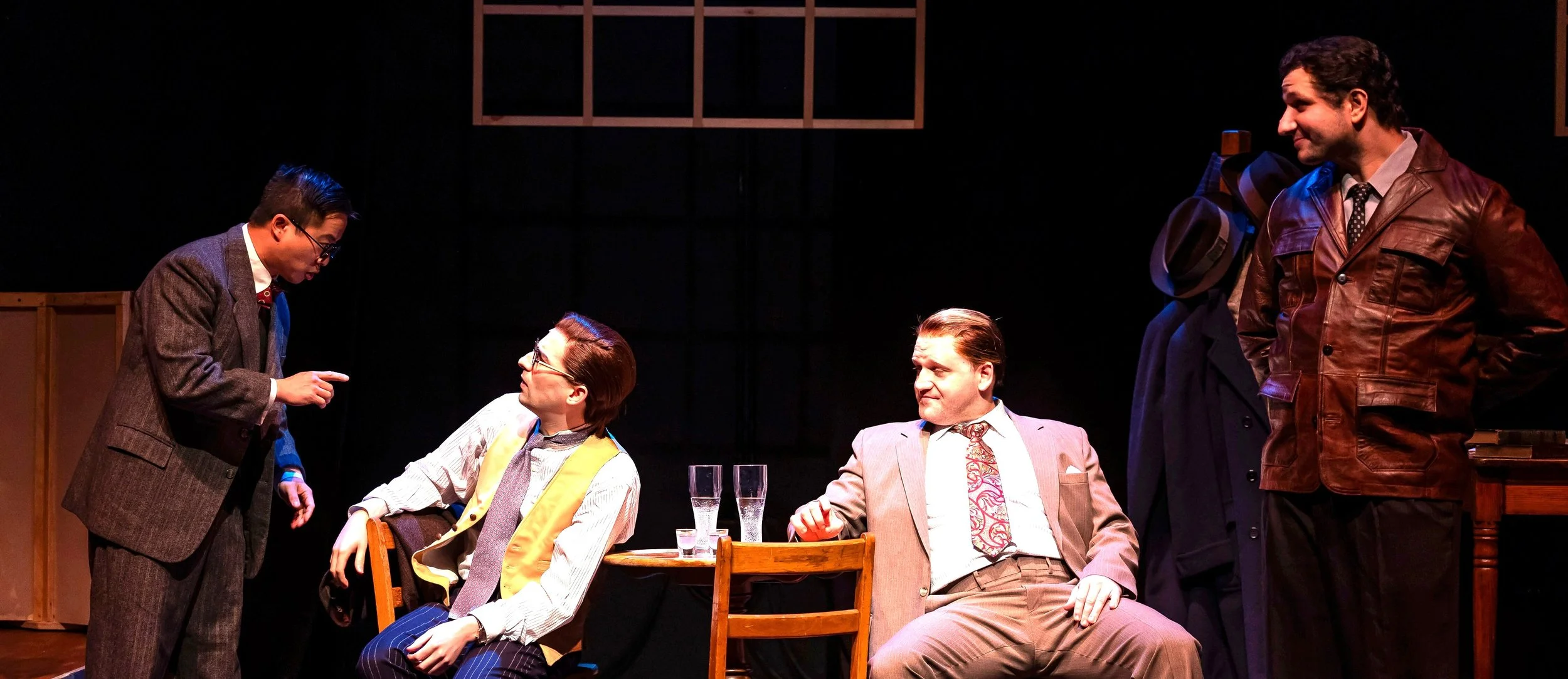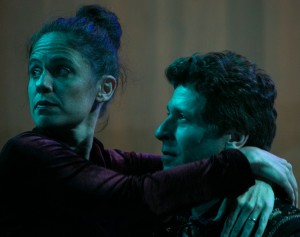Henrik Ibsen’s play The Wild Duck received a confused reaction from most critics after it was published in 1884. Almost alone, George Bernard Shaw acclaimed it, and while its reputation has gradually grown, it isn’t performed nearly so much as A Doll’s House or Hedda Gabler or Ghosts: the last New York City production in English was in 1987. For a play that the stern critic John Simon called “one of the finest tragicomedies in all dramatic literature,” the neglect is shocking, so Theatre for a New Audience deserves kudos for resurrecting it. The result, however, is often disappointing.
Henry IV
The actor Dakin Matthews won a special Drama Desk award in 2003 when he adapted both parts of Shakespeare’s King Henry IV into a single, albeit lengthy, version produced at Lincoln Center. His edit allowed regional theaters to present the histories of Henry IV; his son Prince Hal; and the roguish Falstaff in one production, lessening the expense of mounting two separate ones. The adaptation removes lesser characters, such as Mouldy and Rumour in part 2, and trims extended metaphors and a lot of obscure Elizabethan humor. But the famous scenes and lines remain—“I am not only witty in myself, but the cause of wit in other men,” “Uneasy lies the head that wears a crown,” “We have heard the chimes at midnight.”
Public Obscenities
Shayok Misha Chowdhury's semi-autobiographical Public Obscenities returns to the stage this season at Theatre for a New Audience as part of The Under the Radar Festival. The production explores themes of returning home and complex relationships as a queer Indian man tries to come to terms with his family’s secrets while breaking away from learned behavior.
The Merchant of Venice
When most people think of Shakespeare’s The Merchant of Venice, it's Shylock who springs to mind, not the titular merchant. As a Jew in a Christian city-state, Shylock is an outsider; as a moneylender in an economy that reviles usury, he’s a pariah. Director Arin Arbus has chosen John Douglas Thompson, one of the most accomplished classical actors of his generation, as Shylock in her modern-dress production at Theatre for a New Audience (TFANA). Thompson, reportedly the first Black actor to play Shylock professionally in New York, finds music even in the most acidic passages of the Bard’s rhetoric; his nuanced performance explodes at crucial points, with moral indignation outstripping self-pity.
Julius Caesar
In the opening moments of Theater for a New Audience’s The Tragedy of Julius Caesar, Metellus Cimber (Ted Deasy), one of the conspirators against Caesar, confronts a “mechanical,” or ordinary citizen, who is out on the street loudly celebrating the festival of Lupercal. Metellus ends up putting a chokehold on the man and then tossing him to the ground. The violent energy doesn’t let up for the next two hours and 40 minutes of a production that, at moments, is clear and invigorating, but at others sacrifices subtlety for movement and spectacle.
Marcel + The Art of Laughter
The first thing to know about Marcel + The Art of Laughter is that they are two one-acts, not a single show. The first is named for one of the two performers in it: Marcello Magni—although using the French version of Marcello conveniently echoes the great mime Marcel Marceau. The second is a solo performance by Marcel’s compatriot in the first piece (and co-creator of it) Jos Houben, a Belgian. Their show is about clowning and laughter, and it has a particular European sensibility that’s engaging, offbeat and sometimes strangely familiar.
Measure for Measure
Measure for Measure (1604) has long been considered one of Shakespeare’s problem plays. Partly it’s because of corruptions in the printing, but also, as a purported “comedy,” it’s never fully satisfying. In the right director’s hands, though, it can be deeply intriguing and memorable.
Strained Geometry
It’s an axiom of theater that a writer shouldn’t direct his own work. Whether, if Richard Maxwell had heeded that advice, Isolde would seem more than a taxing exercise in bewilderment is an open question.
The play’s titular heroine is a woman struggling with neurosis. Her wealthy protector, Patrick (Jim Fletcher)—“she’s kind of a daughter and a wife a little bit to me”—is footing the bill for her to have a dream house built, and not just a dream house, but a perfect house. The architect she has chosen is named Massimo, but it’s unclear that Massimo (Gary Wilmes) has a talent for anything but gooey, pretentious psychobabble, although he has supposedly won awards. As it happens, Patrick has a construction company and knows the business. He challenges Massimo to put his ideas on paper, show him some schematics, but Massimo resists. Instead, Massimo begins an affair with the troubled Isolde (Tory Vazquez, who is married to Maxwell).
This mundane set-up turns out to strain credibility, and it gets scant help from the writing or the direction. Massimo expounds on “beauty that can be found in harmony” but sounds like a charlatan. He notes that “each of my projects is the start of a movement which will only be completed when it relates to the environment. The landscape is beauty. I read it like a book, I experience it and I protect it.” Patrick and Isolde come off as equally implausible. Describing Massimo, Patrick says he’s “jejune,” and notes “he left his glove on to shake my hand.” Isolde responds, “I know you hate that.” Really? How often does one shake hands with someone who’s gloved? It would have to be pretty often to build up antipathy toward the practice. And it doesn’t help that Maxwell directs his actors to deliver their lines woodenly, often just standing to face the audience. The result is that the dialogue, with emotion tamped down, frequently seems to be mere recitation.
Whether this is a way of indicating the action is from Isolde’s memory is unclear. She is a renowned actress, lately struggling to remember her lines, yet is stricken with ennui. “How long have I been doing the same thing?” she asks. “Every new project is the old project, then do it again…how many times? Get on a plane, go through a tunnel, go over a bridge.” Her name, of course, evokes the legendary Cornish love triangle of Tristan, Isolde, and King Mark, and that seems to be the role she's struggling with.
“I noticed myself and my predicament echoing through the epochs,” says Isolde’s character in the play being rehearsed, hinting at a universality in this love triangle. In any case, the legend is sidelined until late in the show, when it is explicitly invoked in a dumb show, for which Isolde appears in a gown of burgundy velvet and the men wear medieval garb and wield large swords. (Costumes are by Romy Springsguth.) Here Sascha van Riel’s bland lighting suddenly becomes saturated in garish color, but the sequence and what follows generate even more confusion.
Maxwell’s staging is also baffling. On Sascha van Riel’s set of a raised platform, some modernist chairs, and a couple walls broken by a dado rail that suggest rooms wallpapered in butcher paper, characters seem to appear from nowhere. “Here he comes,” says Isolde, and Massimo arrives. Any sense of real life, in which someone rings or knocks, someone goes to answer it, someone escorts a guest out rather than lets him wander alone through the home, is absent. The front door is apparently wide open. The scenes play as snapshots, but what’s in those snapshots doesn’t ring true.
There are some interesting passages, notably one about the refrigeration techniques of ancient Sumerians, but they are tangential, though Maxwell does prove adept at finding comedy in odd moments, thanks mostly to a fourth character, Uncle Jerry (Brian Mendes), who is also in construction and a friend of Patrick’s.
Ultimately, any message the play has is undermined by the determined obscurity and the affectless deliveries. Whether isolated images and passages will stick in one’s memory is too soon to know. But the likelihood is slim.
Richard Maxwell's Isolde plays through Sept. 27 at the Polonsky Shakespeare Center (262 Ashland Place between Lafayette Ave. and Fulton St.) in Brooklyn. Evening performances are at 7:30 p.m. on Tuesday through Sunday; matinees are at 2 p.m. on Saturday and Sunday. Tickets may be purchased by calling 866-811-4111 or visiting www.tfana.org.















